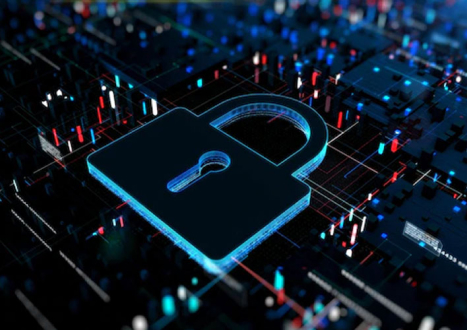- Home
- Video Courses
- Certifications
- NSE4_FGT-6.4: Fortinet NSE 4 - FortiOS 6.4 Dumps


NSE4_FGT-6.4: Fortinet NSE 4 - FortiOS 6.4 Certification Video Training Course
NSE4_FGT-6.4: Fortinet NSE 4 - FortiOS 6.4 Certification Video Training Course includes 84 Lectures which proven in-depth knowledge on all key concepts of the exam. Pass your exam easily and learn everything you need with our NSE4_FGT-6.4: Fortinet NSE 4 - FortiOS 6.4 Certification Training Video Course.
Curriculum for Fortinet NSE4_FGT-6.4 Certification Video Training Course

NSE4_FGT-6.4: Fortinet NSE 4 - FortiOS 6.4 Certification Video Training Course Info:
The Complete Course from ExamCollection industry leading experts to help you prepare and provides the full 360 solution for self prep including NSE4_FGT-6.4: Fortinet NSE 4 - FortiOS 6.4 Certification Video Training Course, Practice Test Questions and Answers, Study Guide & Exam Dumps.
Fortinet NSE 4 Training & Certification (NSE4_FGT-6.4)
Introduction to the Fortinet NSE 4 Training Program
The Fortinet NSE 4 certification is one of the most sought-after professional recognitions for network security engineers, administrators, and technical specialists working with Fortinet solutions. The NSE4_FGT-6.4 exam is a specialized certification exam that focuses on FortiGate Security and FortiGate Infrastructure. This training program has been designed to prepare learners with the theoretical knowledge and practical expertise required to manage, configure, and maintain FortiGate devices while ensuring robust security practices in enterprise environments.
The course blends academic knowledge with industry-driven use cases, ensuring that learners not only understand the subject matter but also acquire skills that can be applied immediately in real-world situations. Participants in this program gain a strong command of Fortinet technologies, as well as an appreciation of how FortiGate appliances are positioned within the broader cybersecurity ecosystem.
The program is structured into multiple modules that emphasize different aspects of FortiGate firewall deployment, management, monitoring, and optimization. By progressing through the modules, learners steadily build their competencies from foundational to advanced levels, allowing them to meet the demands of modern organizations that rely on Fortinet devices for network protection.
Purpose of the NSE 4 Certification
The NSE 4 certification serves as proof that an individual has mastered the skills necessary to implement, configure, and manage FortiGate security devices. As enterprises increasingly depend on firewalls to safeguard their networks against evolving cyber threats, professionals with NSE 4 certification are highly valued in the market.
This course aims to bridge the gap between theoretical cybersecurity principles and Fortinet’s practical tools by presenting a well-rounded program that prepares learners not just to pass the NSE4_FGT-6.4 exam, but also to excel in professional roles where Fortinet solutions are deployed.
Benefits of Undertaking the Training
Completing the Fortinet NSE 4 training offers a range of advantages for participants. It enhances professional credibility, validates technical expertise, and provides hands-on exposure to the features and functionalities of FortiGate devices. The training also strengthens problem-solving skills by simulating real-world challenges, ensuring that learners can troubleshoot issues, optimize performance, and uphold best practices in security management.
For organizations, having NSE 4 certified staff means higher confidence in the effectiveness of firewall policies, better defense against advanced cyber threats, and improved compliance with industry standards. For individuals, certification opens doors to career progression, higher salaries, and opportunities in global markets where Fortinet devices are widely adopted.
Course Modules Overview
The course is organized into two major learning areas aligned with the NSE4_FGT-6.4 exam: FortiGate Security and FortiGate Infrastructure. Within these areas, modules are carefully designed to provide sequential learning experiences. Each module builds on previous knowledge while introducing new concepts, ensuring learners gain both breadth and depth in their understanding of FortiGate technologies.
FortiGate Security Fundamentals
This module lays the foundation for understanding FortiGate devices by exploring basic security features and core configuration practices. It introduces the firewall policies that define traffic control within the network, explains network address translation concepts, and highlights how FortiGate devices enforce rules that protect data integrity and confidentiality.
Learners engage with scenarios that demonstrate the practical application of firewall policies, deep packet inspection, and user authentication. By the end of this module, participants gain the ability to define and implement basic firewall rules while recognizing the importance of a layered security model.
User Authentication and Access Management
In this module, learners dive deeper into authentication mechanisms available within FortiGate solutions. Emphasis is placed on local and remote authentication methods, user identity integration, and the enforcement of role-based access controls. The significance of robust authentication in preventing unauthorized access is discussed, along with hands-on examples of configuring different identity management options.
Through this module, participants learn to apply authentication practices that balance security with usability, ensuring that legitimate users can access resources seamlessly while malicious actors are effectively blocked.
Secure Remote Connectivity with VPNs
Virtual private networks are critical to enabling secure communication across untrusted networks. This module covers the configuration and deployment of IPsec and SSL VPNs using FortiGate devices. Participants learn the differences between site-to-site and remote-access VPNs, study encryption methodologies, and practice setting up secure tunnels to safeguard corporate communications.
The module highlights practical challenges in VPN deployment, such as scalability, interoperability, and key management, while offering troubleshooting guidance to resolve common issues. By the end, learners are equipped to implement reliable VPN solutions for remote workforces and branch office connectivity.
Web Filtering and Application Control
This module introduces learners to FortiGate’s ability to filter and control traffic at the application level. Participants examine how FortiGuard services provide real-time threat intelligence to block malicious websites, prevent access to inappropriate content, and enforce acceptable use policies.
Learners gain hands-on knowledge of how to configure web filtering profiles, create application control signatures, and monitor traffic for compliance. This module stresses the importance of controlling not just network flows, but also user behaviors that can introduce security vulnerabilities.
Intrusion Prevention and Advanced Threat Protection
Modern networks are constantly under attack from sophisticated adversaries. This module explores FortiGate’s intrusion prevention system, which detects and blocks exploit attempts in real time. Learners understand how IPS signatures work, how to configure custom policies, and how to fine-tune protection without disrupting legitimate business traffic.
The integration of IPS with other FortiGate features is emphasized, showcasing how organizations can build a holistic security posture that addresses known vulnerabilities, zero-day threats, and advanced persistent attacks.
Logging, Monitoring, and Reporting
Monitoring network activity is crucial for identifying anomalies and responding to incidents quickly. This module focuses on FortiGate’s logging and reporting features, including real-time monitoring through FortiView and detailed analysis through log reports. Learners discover how to interpret system logs, identify suspicious behaviors, and generate customized reports for different stakeholders.
The module underscores the value of proactive monitoring as a means to maintain compliance, enhance accountability, and continually refine security strategies.
FortiGate Infrastructure and Advanced Networking Concepts
This set of modules transitions learners from basic security principles to the advanced configuration and infrastructure management capabilities of FortiGate devices. Participants explore routing, high availability, virtual domains, and other critical features that enable large-scale deployments and enterprise-grade performance.
Advanced Routing and Traffic Shaping
Routing is at the heart of every firewall’s operation. This module teaches learners about static and dynamic routing, route redistribution, and the configuration of OSPF and BGP on FortiGate devices. It also covers traffic shaping techniques that prioritize critical applications, ensuring that business continuity is maintained even under constrained bandwidth conditions.
By engaging with case studies, learners understand how routing decisions impact overall security and performance, as well as how to balance security needs with network efficiency.
High Availability and Redundancy
Business networks demand continuous uptime, and this module explores how FortiGate devices achieve resilience through high availability configurations. Participants learn about active-passive and active-active modes, heartbeat connections, failover scenarios, and synchronization of configurations between devices.
Through hands-on exercises, learners simulate failure events and observe how redundancy mechanisms preserve network integrity. This builds confidence in deploying FortiGate solutions in mission-critical environments where downtime is unacceptable.
Virtual Domains and Multi-Tenancy
In large organizations or managed service provider environments, a single FortiGate device often serves multiple business units. This module introduces the concept of virtual domains, which allow administrators to partition one device into several independent firewalls. Learners practice creating and managing VDOMs, assigning resources, and ensuring isolation between tenants.
By mastering multi-tenancy, learners gain the ability to deploy FortiGate solutions in complex scenarios, delivering secure and scalable services to diverse stakeholders.
Centralized Management and FortiManager Integration
Managing a single FortiGate device may be straightforward, but enterprise deployments require centralized oversight. This module explores integration with FortiManager and FortiAnalyzer to streamline policy management, logging, and reporting across multiple devices.
Learners appreciate how centralized management enhances visibility, reduces administrative burden, and enforces consistent security standards across geographically dispersed networks.
Capstone and Practical Assessments
To conclude the modules, learners participate in capstone activities that combine knowledge from previous lessons into real-world simulations. They configure firewall policies, establish VPNs, set up high availability clusters, and monitor logs in integrated scenarios. These assessments not only prepare participants for the certification exam but also replicate the challenges they will encounter as professionals working with Fortinet solutions.
Conclusion of Course Overview and Modules
The Fortinet NSE 4 training and certification program offers a holistic approach to mastering FortiGate security and infrastructure concepts. By progressing through its modules, learners acquire the knowledge and hands-on skills required to succeed in the NSE4_FGT-6.4 exam and thrive in professional environments where Fortinet technologies are deployed. The course stands as both an academic learning path and a career development tool, equipping participants to tackle today’s cybersecurity challenges with confidence and competence.
Introduction to Course Requirements
Every professional training and certification program has specific requirements that define the preparedness level of participants and the resources needed for successful completion. The Fortinet NSE 4 Training and Certification program is no exception. Designed for network security engineers, administrators, and IT professionals, this course demands a combination of prior knowledge, technical competence, and access to learning resources. Understanding these requirements is critical because it allows participants to maximize their learning experience and ensures they are ready to meet the expectations of both the training and the certification exam.
The requirements of this course are not meant to discourage participation but rather to establish a foundation that ensures learners can progress without unnecessary hurdles. By meeting the requirements, learners can approach the training with confidence, absorb advanced concepts effectively, and apply their knowledge in practical real-world scenarios.
Prerequisite Knowledge in Networking
Before enrolling in the Fortinet NSE 4 program, participants are expected to have a solid understanding of general networking principles. Since FortiGate devices operate at multiple layers of the OSI model, familiarity with fundamental concepts such as IP addressing, routing, subnetting, and switching is essential. Participants should understand how data travels across networks, how devices interact with each other, and how traffic management protocols function.
Knowledge of protocols such as TCP, UDP, HTTP, HTTPS, DNS, and DHCP is particularly important because FortiGate devices inspect, filter, and control this traffic. Without this baseline understanding, learners may find themselves struggling to keep up with the more advanced concepts covered in the modules. A strong grasp of routing principles is also necessary, including the ability to configure and troubleshoot static routes as well as an appreciation of dynamic routing protocols.
Familiarity with Security Fundamentals
In addition to networking knowledge, learners are expected to have some exposure to general cybersecurity principles. Concepts such as firewalls, intrusion detection, encryption, and authentication should be understood at a theoretical level before beginning the course. This prior knowledge makes it easier to comprehend how FortiGate devices implement these features in practice.
Security fundamentals such as the CIA triad of confidentiality, integrity, and availability form the backbone of every decision made when configuring FortiGate devices. Learners who understand these principles will appreciate why certain configurations are required and how different security features contribute to overall organizational protection.
Technical Skills in Operating Systems
Because FortiGate devices are administered through command-line interfaces and graphical user interfaces, participants should be comfortable working with different operating environments. Familiarity with Windows and Linux operating systems is recommended, as network security engineers often encounter both in enterprise environments. The ability to use terminal commands, edit configuration files, and manage user permissions in Linux, alongside the ability to navigate system settings in Windows, prepares learners to integrate FortiGate solutions into heterogeneous infrastructures.
Prior Exposure to Firewalls
Although not strictly mandatory, prior hands-on experience with firewalls—whether hardware-based or software-based—significantly benefits learners. Professionals who have already worked with access control lists, packet filtering, and policy rules will find it easier to adapt to the FortiGate environment. This exposure provides a practical context for the concepts taught in the course, accelerating the learning curve.
Language and Communication Requirements
Since the Fortinet NSE 4 training program and certification exam are conducted in English, participants are expected to possess a reasonable command of the language. This includes the ability to read technical documentation, understand exam questions, and communicate clearly during interactive exercises. Technical vocabulary in English is an integral part of the cybersecurity industry, so proficiency in the language ensures learners can access resources beyond the course as well.
Hardware Requirements for Hands-On Training
One of the defining features of the Fortinet NSE 4 training is its emphasis on hands-on practice. To engage fully with the labs and exercises, learners must have access to specific hardware or equivalent virtual environments. Ideally, participants should work with FortiGate devices, either in physical form or as virtual machines provided by Fortinet’s virtualization solutions.
A laptop or desktop with adequate processing power, sufficient memory, and stable internet connectivity is required to run Fortinet virtual machines smoothly. Without proper hardware, learners may struggle with latency, crashes, or incomplete lab exercises, which can hinder their ability to internalize concepts.
Software Requirements and Tools
Alongside hardware, software requirements must also be met. Participants should ensure they have access to web browsers for GUI management of FortiGate devices and SSH or terminal clients for command-line interactions. In some cases, network simulation software may be used to replicate complex enterprise scenarios. Logging and monitoring tools provided within the Fortinet ecosystem may also be required for specific modules.
In addition, participants are advised to install supporting applications such as VPN clients, packet analyzers, and text editors, which assist in troubleshooting and documenting configurations. These software requirements ensure that learners can replicate the scenarios covered during the training sessions without facing compatibility or accessibility issues.
Access to Fortinet Resources
Fortinet provides an array of learning resources, including documentation, knowledge bases, and online community forums. To maximize the value of this course, learners must be prepared to engage actively with these resources. Having an account with Fortinet’s support portal, access to Fortinet documentation, and availability of lab guides enrich the learning journey.
The official study guides and release notes are essential for keeping up with version-specific changes. Since the NSE4_FGT-6.4 exam focuses on FortiOS 6.4, learners must work with updated documentation that reflects the latest features, commands, and policies introduced in this version.
Time Commitment Requirements
Achieving success in the Fortinet NSE 4 training requires a significant investment of time. Participants should allocate sufficient hours each week to attend sessions, study theoretical material, complete labs, and review practice questions. Consistency is key; sporadic engagement with the material may result in fragmented knowledge that hinders exam performance.
The recommended preparation period varies depending on prior experience, but most learners dedicate several weeks to months to cover all modules thoroughly. In addition to scheduled training hours, learners should reserve time for independent exploration of FortiGate devices to reinforce their understanding.
Professional Experience Recommendations
Although not a strict requirement, having at least six months to two years of professional experience in networking or cybersecurity is highly recommended. Professionals who have previously worked in roles involving network administration, system support, or information security operations will find the course concepts more intuitive. Practical experience bridges the gap between theoretical knowledge and real-world applications, ensuring learners grasp not only how to configure FortiGate devices but also why certain configurations are necessary in specific contexts.
Examination Requirements
The ultimate goal of the training program is to prepare learners for the NSE4_FGT-6.4 exam. Understanding the exam requirements in advance is crucial for successful certification. The exam typically includes multiple-choice and scenario-based questions that test both theoretical knowledge and practical configuration skills. Familiarity with exam objectives is therefore a requirement for effective study.
Participants should register for the exam through authorized Fortinet testing centers or online platforms. Meeting identification requirements, following testing protocols, and adhering to time constraints are all essential aspects of the examination process. By aligning training efforts with exam requirements, learners improve their chances of passing on their first attempt.
Financial Requirements and Investment
Enrolling in the Fortinet NSE 4 course requires financial investment. Beyond training fees, participants should budget for the cost of the certification exam itself, as well as additional resources such as textbooks, lab equipment, or access to virtual labs. Viewing these costs as an investment rather than an expense allows learners to appreciate the long-term benefits of enhanced professional opportunities and career growth that accompany certification.
Organizational Support Requirements
For professionals undertaking this training while employed, organizational support can significantly enhance success rates. Organizations may provide access to FortiGate devices, cover training expenses, or allocate time during working hours for study. Support from employers not only reduces financial and logistical burdens but also demonstrates the organization’s commitment to developing its workforce.
Mental Preparedness and Learning Mindset
Perhaps the most important requirement of all is the right mindset. The Fortinet NSE 4 training program is intensive, requiring participants to engage with complex topics, troubleshoot challenging problems, and apply knowledge in practical scenarios. Learners must approach the training with determination, patience, and an eagerness to learn. Mistakes made in labs or practice exams are not setbacks but opportunities for growth. A growth-oriented mindset ensures that learners remain motivated throughout the program, even when confronted with difficult material.
Conclusion of Requirements Section
The requirements of the Fortinet NSE 4 Training and Certification program extend beyond technical prerequisites to encompass hardware, software, time, financial investment, and personal commitment. By meeting these requirements, participants position themselves for success not only in the certification exam but also in their careers as cybersecurity professionals. The effort invested in preparation pays dividends in terms of enhanced skills, professional credibility, and the ability to contribute meaningfully to organizational security strategies.
Audience
Introduction to the Course Description
The Fortinet NSE 4 Training and Certification program is a comprehensive learning pathway designed to equip professionals with the skills necessary to configure, manage, and troubleshoot FortiGate devices running FortiOS 6.4. As part of the globally recognized Network Security Expert certification track, NSE 4 occupies a central role in validating the technical expertise of individuals tasked with safeguarding enterprise networks against increasingly complex threats.
The course description highlights not only the technical content but also the methodology, objectives, and expected outcomes for learners. This is not simply a preparation program for an exam; it is a transformational learning experience that enables participants to adopt the mindset of a security engineer while mastering the practical tools of Fortinet’s flagship firewall solution.
Purpose of the Course
The primary purpose of the Fortinet NSE 4 course is to develop professionals who can confidently implement security policies, optimize network performance, and maintain resilient defenses in modern IT infrastructures. The training provides structured exposure to the fundamental and advanced capabilities of FortiGate devices. By progressing through the course, learners move beyond theoretical understanding to practical expertise, enabling them to function effectively in high-stakes environments where downtime and breaches are not acceptable.
The course is also designed to prepare participants for the NSE4_FGT-6.4 certification exam. However, the broader purpose goes further, aiming to instill a long-lasting proficiency in Fortinet solutions. Certified individuals are expected to serve as trusted security advisors within their organizations, capable of making informed decisions, implementing best practices, and responding quickly to incidents.
Structure of the Course
The Fortinet NSE 4 course is structured into interrelated sections covering both FortiGate Security and FortiGate Infrastructure. Security topics include firewall policies, user authentication, secure connectivity, web filtering, and intrusion prevention. Infrastructure topics cover advanced routing, high availability, virtual domains, and centralized management.
The course combines theoretical lectures, hands-on lab exercises, real-world case studies, and practice assessments. This blended approach ensures that learners not only absorb knowledge but also apply it in simulated environments, preparing them for both the exam and real-world responsibilities.
Delivery Format
To accommodate diverse learning preferences and professional obligations, the Fortinet NSE 4 course is delivered in multiple formats. Instructor-led classroom training provides direct interaction with certified trainers, fostering collaborative learning and immediate feedback. Online self-paced training allows learners to progress at their own rhythm while still accessing comprehensive resources. Hybrid options combine the strengths of both approaches, ensuring flexibility without compromising quality.
Interactive labs form the backbone of the delivery format. These labs replicate real-world configurations and scenarios, offering learners the chance to practice tasks such as creating firewall policies, configuring VPNs, and setting up high availability clusters. The emphasis on hands-on experience ensures that learners emerge from the program not only with theoretical knowledge but also with practical confidence.
Learning Outcomes
By the conclusion of the Fortinet NSE 4 training program, participants are expected to demonstrate a range of competencies. They should be able to configure firewall policies that enforce security rules tailored to organizational needs. They should be adept at implementing secure remote connectivity through VPNs, deploying intrusion prevention mechanisms to guard against exploits, and applying content filtering measures to regulate user behavior.
Learners also gain the ability to design scalable infrastructure solutions, implement dynamic routing protocols, configure redundant FortiGate clusters, and manage multi-tenant environments through virtual domains. Beyond technical skills, participants develop problem-solving abilities, analytical thinking, and the confidence to approach security challenges methodically.
Real-World Applications of the Course
The Fortinet NSE 4 course has direct applications in professional environments. Certified individuals can immediately contribute to the design, deployment, and management of FortiGate firewalls in enterprises, service providers, and government organizations. They become equipped to optimize bandwidth usage, enforce compliance requirements, and defend against cyberattacks targeting organizational assets.
In addition, the skills gained extend beyond FortiGate appliances. Concepts such as VPNs, intrusion prevention, and centralized management are applicable across the cybersecurity domain, giving learners versatile expertise that enhances their employability in varied roles.
Certification Exam Alignment
Every module within the course is carefully aligned with the objectives of the NSE4_FGT-6.4 certification exam. This alignment ensures that participants are not only acquiring general skills but also preparing specifically for exam scenarios. The exam emphasizes both conceptual understanding and practical configuration knowledge, so the course mirrors this balance by incorporating lectures, labs, and assessments that reflect exam-style questions.
Completing the training increases learners’ readiness to take the exam with confidence. More importantly, it ensures that success in the exam is not simply based on memorization but on genuine understanding of FortiGate features and their practical applications.
Audience for the Course
The Fortinet NSE 4 training is intended for a wide range of professionals across the IT and cybersecurity spectrum. While the audience is diverse, all participants share a common goal: to enhance their ability to secure networks using FortiGate devices.
Network Security Engineers
Network security engineers form the primary audience for the NSE 4 training. These professionals are responsible for designing and enforcing security architectures in enterprises and service providers. By completing the course, they acquire the ability to implement FortiGate firewalls as central components of their security ecosystems, ensuring that organizational networks remain protected against ever-evolving threats.
System Administrators
System administrators who manage corporate IT infrastructures also stand to benefit greatly from the course. Many system administrators are tasked with overseeing firewalls, VPNs, and security policies as part of their broader responsibilities. Through NSE 4 training, they gain specialized knowledge that allows them to manage FortiGate devices more effectively, troubleshoot issues quickly, and reduce reliance on external consultants.
Network Administrators
Network administrators often work at the intersection of connectivity and security. For them, the Fortinet NSE 4 course provides insights into how FortiGate devices manage routing, traffic shaping, and redundancy, alongside their security functions. This dual expertise allows network administrators to balance performance with protection, ensuring that enterprise networks remain both efficient and secure.
Security Analysts
Security analysts responsible for monitoring and responding to threats find immense value in the NSE 4 course. With knowledge of FortiGate’s logging, monitoring, and intrusion prevention features, analysts become better equipped to detect anomalies, investigate suspicious activities, and coordinate incident responses. The course enables them to leverage FortiGate as a critical tool in their security operations workflows.
IT Managers and Decision Makers
While IT managers may not directly configure FortiGate devices, understanding their capabilities is crucial for making informed decisions. The course provides managers with the knowledge needed to evaluate firewall strategies, allocate resources, and oversee teams of administrators. Managers who complete the course can better align security strategies with organizational goals, ensuring that FortiGate deployments deliver maximum value.
Cybersecurity Consultants
Independent consultants and contractors also form a key audience for the Fortinet NSE 4 training. These professionals often advise organizations on security strategy and implementation. Certification provides them with credibility, signaling to clients that they possess validated expertise in Fortinet technologies. For consultants, NSE 4 is a pathway to expanding their service offerings and gaining a competitive edge in the marketplace.
Students and Aspiring Professionals
The course is also suitable for students and aspiring professionals seeking to enter the cybersecurity industry. While they may not have extensive professional experience, their enthusiasm and academic background provide a strong foundation for learning. By completing the NSE 4 training, students position themselves for entry-level roles where they can apply their knowledge in real-world contexts.
Global Relevance of the Audience
The audience for the Fortinet NSE 4 course is not restricted by geography. FortiGate devices are deployed worldwide, making the certification valuable across diverse regions and industries. Professionals in telecommunications, finance, healthcare, government, and education can all benefit from NSE 4 training. This global relevance ensures that certified individuals enjoy broad career opportunities, whether they choose to remain local or pursue international roles.
Career Advancement for the Audience
For every audience category, completing the NSE 4 course opens doors to career advancement. Certified professionals can pursue higher-level certifications within the Fortinet Network Security Expert track, expand their responsibilities within their organizations, or seek new opportunities in the competitive cybersecurity job market.
Employers increasingly seek certified professionals as they provide assurance of technical competence and reduce the risk of misconfigured security systems. Thus, learners who invest in the NSE 4 course not only enhance their skills but also position themselves for long-term professional growth.
Conclusion of Course Description and Audience
The Fortinet NSE 4 Training and Certification program is a robust, globally recognized pathway that equips learners with the skills to configure, manage, and secure FortiGate devices. The course is carefully structured to balance theory and practice, ensuring that participants not only prepare for the NSE4_FGT-6.4 exam but also develop practical expertise applicable in professional contexts.
The audience for this course is wide-ranging, including engineers, administrators, analysts, managers, consultants, and aspiring students. Each group derives unique benefits from the training, but all emerge with enhanced capabilities that strengthen both their personal careers and the security postures of their organizations.
By combining a rigorous curriculum with real-world applications, the Fortinet NSE 4 course provides participants with the confidence to take on modern cybersecurity challenges. Whether securing enterprise networks, consulting for clients, or pursuing academic excellence, certified professionals are empowered to contribute meaningfully to a safer digital world.
Student Feedback
Similar Fortinet Video Courses








Only Registered Members Can Download VCE Files or View Training Courses
Please fill out your email address below in order to Download VCE files or view Training Courses. Registration is Free and Easy - you simply need to provide an email address.
- Trusted By 1.2M IT Certification Candidates Every Month
- VCE Files Simulate Real Exam Environment
- Instant Download After Registration.
Log into your ExamCollection Account
Please Log In to download VCE file or view Training Course
Only registered Examcollection.com members can download vce files or view training courses.




